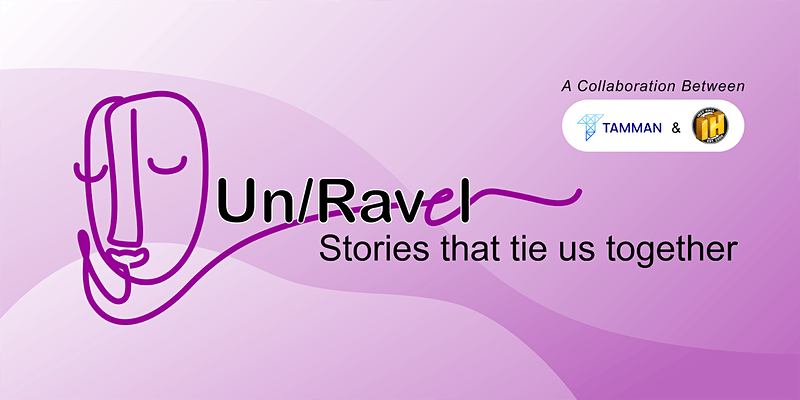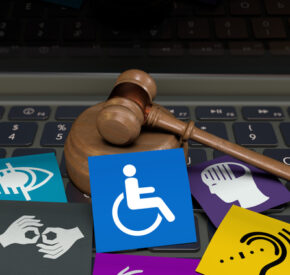Some Thoughts on Not Getting the Job
How to move forward after a job rejection

Presenting some thoughts on moving through life after the job interview feels trivial at first: you either got the job or you didn’t. But getting a job often means so much more than that. In fact, according to Brad Simek, Managing Partner at Spinnaker Search Group, (whose expertise helped me to craft this article) after falling in love or finding close friends, finding a job is one of the most monumental matches a person goes through. Therefore, it makes sense that moving through rejection feels similar to moving through grief, with its accompanying feelings of anger and loss. For people with disabilities, who have employment statistics stacked against them and who may think of work as both a means of livelihood and an important aspect of identity, the feelings accompanying rejection can be particularly deep and even more fraught with tension. In this article I’ll attempt to unpack some of these feelings by connecting them to the necessary actions you can take as an employee with a disability as you “keep on keeping on.”
Sorry. Next?
One of my creative writing mentors gave me the most helpful piece of advice I’ve ever had in my professional life. When you are waiting to hear back on a decision, try your very best to be absorbed in something else. I haven’t always been able to follow this writing advice. However, I’ve always been able to turn to it for everything from manuscript decisions to waiting on the possibility of a job offer. In a way, it’s helpful to trick yourself that the interview is actually the end of the journey, not the middle of it. If you can work on applying for another job or searching for new jobs to apply to, the sting of a rejection may feel a bit less potent, because it does not influence the trajectory of the rest of your life. An acceptance can feel more like a pleasant surprise than something you’ve been obsessively waiting for.
Sometimes the email tells you the employer found someone else before you even open it. If you get something from the “no-reply” email address or a general Human Resources email, you know it can’t be good news. (For the record, my friends at Tamman are appalled at this level of indifference and callousness. The team here believes strongly that while not every communication can be personalized due to volume at the application phase, if you’ve actually met people and gone through the interview process, then anything short of a personalized communication is just unacceptable, and you didn’t want to work there anyway.)
Hopefully you will get an email from the interviewer, and then you have to read it to know one way or the other. Rejections rarely come through phone calls now, but again this level of personal attention can tell you something about the employer. Email is such a convenient way for people to let someone down without having to engage with them. However, if you receive an email from a person’s name whom you recognize, don’t always assume that it is bad news. If it is bad news, don’t assume that the rejection is the end of the road with this company. Sometimes, the company chose someone else over you because of specific experiences the person had or because two personalities clicked, but the interviewer might have liked you, and someone might feel badly that they have one position for several qualified applicants. Generally, according to Brad, recruiters and employers avoid giving specific feedback so they will not get into any legal battles over a position. Asking someone why you did not get the position is not the best tactic. It is considered a best practice to ask an interviewer if they can give you some feedback about your interview that you can use for your next interview but know that people won’t always be able to give you the feedback you really need. An employer may be in a better position to give you feedback if they can keep it objective—for instance, if you did not have as much experience as another applicant. But sometimes the reason an employer did not choose you may come down to personality mismatches or the interview itself. As Brad told me: “Usually the candidate who got the job is the one who interviewed best.”
If the rejection gives specific feedback or if it does not seem like a form rejection, and if you are interested in and have the capacity to continue a working relationship with this company, don’t hesitate to reach out to the employer. Engaging with someone in a professional manner demonstrates interest and is a form of relationship-building in its own right. Thank them for their time, and indicate how you might be able to help in the future. Even if you can’t or don’t want to volunteer or work as an independent consultant for a place that turned you down, you can still thank them and indicate that you might want to work for them in the future if a new opportunity presents itself. Your relationship with this company that you aren’t working for might end there, or it might move in fits and starts toward a job offer. Marty from Tamman explained that a first-choice candidate for a position doesn’t always work out. Or perhaps, a second role opens up. The company, having a policy of interviewing multiple candidates, often reaches out to a second-choice candidate, and it usually works out in the end. They also regularly dip into their pool of candidates whom they’ve previously interviewed before they even post for a position. They really do keep resumes on file.
If you didn’t receive any specific feedback, the best thing you can do is to reflect on your interview and perhaps rehearse the job interview with a career professional. If you graduated from a college or university, a career services office can be a great help with coaching for the next interview. Sometimes a department of vocational rehabilitation may have a program for professionals with disabilities which can help. Finally, recruiters will sometimes help you to rehearse interviews and will give you some advice and feedback. These recruitment/employee services do cost money, so it’s best to check out the services you can access at no cost first. But remember, sometimes your interview went fine, but you just didn’t get the position. Then it may be most important just to move forward.
How do I move forward?
There’s usually no escaping it. A rejection is a rejection. If you feel relatively okay about a rejection and have a plan to move on, rejoice that you’ve emerged from this particular round of job-hunting relatively unscathed, or in other words, don’t go looking for trouble—in this case, grief—when you don’t feel sad. For instance, you may know that a job was a stretch for you in terms of your qualifications and experience, or that there was a high number of applicants for the position, and your chances of obtaining it were low. Or you might have a few more interviews lined up, or you felt a bit off after the interview and realized this would not have been the best place for you to contribute. Use any of these bits of information as tools to accelerate you to the next thing—hopefully an interview which may lead you to an actual job this time. I will even go out on a limb and suggest that you stop reading this article until the acceptance you’ve been waiting for comes—hopefully soon!
But what if this job was your top choice? What if you feel or know your options for positions are limited? What if you thought the interview went well, and certain things the interviewer said made you sure you had a beautifully wrapped job on its way to you in the next few days? What if you were sitting around, waiting for the phone to ring, only to get a sterile rejection email instead? What if you can’t find anything else to apply to? All of these considerations mean that you are human—they happen to all of us at any point in our career search—and you should take some time to acknowledge your hurt and disappointment privately or with a few of your good friends or allies before moving on. Your friends can help you to remember that you are a qualified person who should continue to strive until you get a job. Your allies, such as counselors in the disability space or recruiters, can help you to touch up the interview process if you feel you need that. Take some time to think or talk in the method that works best for you with the goal of returning to the job search again whenever you are ready to give it your best.
Should I take legal action?
Worst of all, what if you feel or know that you had adequate experience and qualifications for the position, your interview went beautifully, and you still did not get the job you’d been hoping for? Even though you addressed your visible disability in the interview, explaining how you would compensate, it was not enough. Somehow, you may feel sure—and you may be right—that the employer felt your disability was a liability, their biases were unshakable, or someone else without a disability applied for the position and got it, because they checked all of the boxes of unconscious bias. But it’s only a feeling, because the rejection email will never state that your disability was the cause of the rejection, even if employer prejudices made it the reason. This can add a real dimension of hopelessness to future searching, because you can feel that there’s no point to continuing to look for something when people question such a fundamental aspect of your identity.
Remember that biases from others can also work to your advantage. This company might have seemed bright and shiny on its website and its externally-facing brochures, but if your interviewer demonstrates bias toward you, it shows that the company’s inner workings are rusty, and you may not want to be part of that dysfunction.
Taking legal action when you are sure that disability bias was at the core of a hiring denial is completely within your rights and is a reasonable response to consider. It is also difficult. The more obvious difficulties are the financial burden you might or might not incur if things don’t settle the way you expect and the time it takes to move from problem to resolution. The less obvious difficulties are the negative emotions you might continue to experience during a long legal process as your recovery from a setback may be drawn out and may hinder you from feeling your best as you find a job that was truly meant for you. The best way to decide whether a job rejection should lead to legal action is to consult an advocacy group for your specific disability or for disabilities in general. These groups often have connections to legal experts who can give you some initial advice at no cost. If possible, talk to two or three legal experts so that you can decide whether it’s best to confront disability bias in the workplace with your specific difficult interview experience or not.
What’s next?
The traditional lore for writers is that when dealing with rejections, you have to “grow a thick skin.” While I was unable to find any statistics to support this claim, I’m willing to guess that the number of job seekers who have been turned down by an employer at least once hovers pretty close to 100%. However, most of us usually prefer not to discuss rejections, keeping our outward focus on ourselves facing the world more positive. Thus, receiving your first rejection(s) or a rejection after a job we really wanted can feel especially lonely. Though it may be difficult at first, take some time to articulate your feelings to yourself, or reach out to people you trust with your concerns about job rejection. Instead of being relentlessly positive, connecting with your feelings in the way that feels most comfortable for you will most likely be the way to “grow a thicker skin” about rejections. This will enable you to move into the next interview with a bit more wisdom and experience, and I hope it will help you to create a very different ending, landing your next job.
___
Kristen Witucki, is a Tamman partner and contributor. A published author and educator, she brings her lived experience and perspective to the Tamman Team





